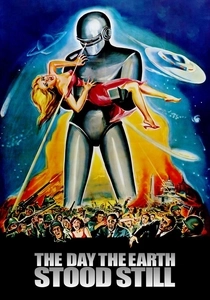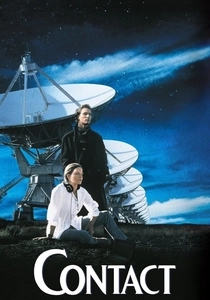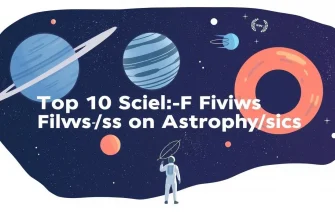Science fiction has always been a genre that pushes the boundaries of our imagination, often exploring the what-ifs of scientific advancements and theories. This curated list of films delves into various scientific concepts, from time travel to quantum mechanics, providing not just entertainment but also food for thought. Whether you're a science enthusiast or just love a good story, these films offer a fascinating blend of real science and speculative fiction.

The Day the Earth Stood Still (1951)
Description: This classic sci-fi film addresses themes of nuclear disarmament and the potential consequences of humanity's actions, using an alien visitor to deliver a message of peace or destruction.
Fact: The film was added to the National Film Registry in 1995 for being "culturally, historically, or aesthetically significant."
 Watch Now
Watch Now 
Contact (1997)
Description: Based on Carl Sagan's novel, this film tackles the SETI (Search for Extraterrestrial Intelligence) project, exploring the implications of first contact with an alien civilization through the lens of scientific discovery and faith.
Fact: The film includes a real message from President Bill Clinton, recorded specifically for the movie.
 Watch Now
Watch Now 
Primer (2004)
Description: This low-budget indie film explores the complexities of time travel through a bootstrap paradox, where the cause and effect loop back on themselves. It's a cerebral take on time manipulation.
Fact: The film was made with a budget of only $7,000, and much of the dialogue was improvised.
 Watch Now
Watch Now 
Sunshine (2007)
Description: Danny Boyle's film about a mission to reignite the dying sun delves into the psychological effects of space travel, the importance of the sun to life on Earth, and the concept of a stellar bomb.
Fact: The film was inspired by the real-life Icarus project, which aimed to study the sun.
 Watch Now
Watch Now 
The Man from Earth (2007)
Description: While not a typical sci-fi, this film explores the concept of immortality through the lens of a man claiming to be 14,000 years old, discussing historical events and the evolution of human thought.
Fact: The entire film takes place in one room, making it a unique and dialogue-driven piece of cinema.
 Watch Now
Watch Now 
Interstellar (2014)
Description: Christopher Nolan's epic space adventure explores the theory of wormholes, time dilation, and the potential for humanity to survive through interstellar travel. It's a film that uses real scientific concepts to tell a deeply emotional story.
Fact: Kip Thorne, a Nobel Prize-winning physicist, served as the scientific consultant for the film, ensuring the accuracy of the physics depicted.
 Watch Now
Watch Now 
Moon (2009)
Description: Duncan Jones's film deals with cloning, space travel, and the psychological effects of isolation, all while exploring the ethics of human cloning and corporate exploitation.
Fact: Sam Rockwell plays multiple versions of his character, showcasing his versatility as an actor.
 Watch Now
Watch Now 
Europa Report (2013)
Description: This found-footage style film follows a crew's mission to Europa, one of Jupiter's moons, to search for signs of life, exploring the possibilities of extraterrestrial biology and the harsh realities of space exploration.
Fact: The film was praised for its scientific accuracy in depicting space travel and the potential for life on Europa.
 Watch Now
Watch Now 
Arrival (2016)
Description: Denis Villeneuve's film explores linguistics, time perception, and the Sapir-Whorf hypothesis, where language shapes thought, through the arrival of mysterious alien spacecraft.
Fact: The film's alien language was designed by a linguist, Dr. Jessica Coon, to be a functional language.
 Watch Now
Watch Now 
The Theory of Everything (2014)
Description: While not strictly science fiction, this biopic about Stephen Hawking delves into his groundbreaking work on black holes, the Big Bang, and the nature of the universe, offering insights into theoretical physics.
Fact: Eddie Redmayne won an Academy Award for Best Actor for his portrayal of Stephen Hawking.
 Watch Now
Watch Now 








